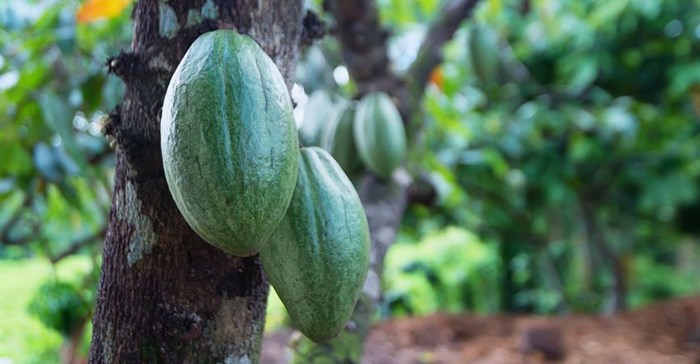Chocolate industry driving deforestation of Ivory Coast: report

"Less than four percent of Ivory Coast remains densely forested," it said. "The chocolate companies' laissez-faire approach to sourcing has driven extensive deforestation in Ghana as well."
Disastrous habitat loss
Habitat loss has been disastrous for protected species, ranging from chimpanzees and leopards to pygmy hippos and elephants, it said. The animals are forced into ever-smaller areas, making it easier for them to be tracked down and slaughtered by poachers.
In Ivory Coast, the world's biggest cocoa producer, accounting for 40 percent of world output, "deforestation has pushed chimpanzees into just a few small pockets, and reduced the country's elephant population from several hundred thousand to about 200-400," the report said.
A "shocking" trade
It said major chocolate brands were indirectly involved in a "shocking" trade, in which growers produced cocoa in national parks, who sold it to middlemen, who then sold it on to a handful of firms that control roughly half of the world's market.
From there, it was sold to big chocolate companies.
"According to our analysis, 291,254 acres (117,900 hectares) of protected areas were cleared between 2001 and 2014," Mighty Earth said. Over the same period, Ghana, another big West African producer, lost 7,000 square kilometers (2,700 square miles) of forest, or about 10 percent of its entire tree cover.
Around a quarter of that deforestation in Ghana was connected to the chocolate industry, the report charged.
Moving towards deforestation-free supply chains
Traders Cargill, Olam and Barry Callebaut, which are named in the report, say on their websites that they are aware of the problem of deforestation in the cocoa sector, and have set up to programmes for deforestation-free supply chains.
Leading chocolate and cocoa companies, under an initiative launched by Britain's Prince Charles, have promised to come up with a "framework of action" to end deforestation in the industry. Their project is due to be unveiled at the world climate conference in Bonn in November.
Deforestation is not only destroying habitat but is also a major contribution to global warming. The world demand for chocolate stands at around three million tonnes annually, a figure that rises between two and five percent each year, in a market worth around $100bn (84 billion), according to the report.
Most of it is manufactured and consumed in Europe and North America.
Source: AFP
Source: I-Net Bridge

For more than two decades, I-Net Bridge has been one of South Africa’s preferred electronic providers of innovative solutions, data of the highest calibre, reliable platforms and excellent supporting systems. Our products include workstations, web applications and data feeds packaged with in-depth news and powerful analytical tools empowering clients to make meaningful decisions.
We pride ourselves on our wide variety of in-house skills, encompassing multiple platforms and applications. These skills enable us to not only function as a first class facility, but also design, implement and support all our client needs at a level that confirms I-Net Bridge a leader in its field.
Go to: http://www.inet.co.za





![By PMO - Ethiopia - [1], Public Domain,](https://biz-file.com/c/2509/787241-300x156.jpg?5)




